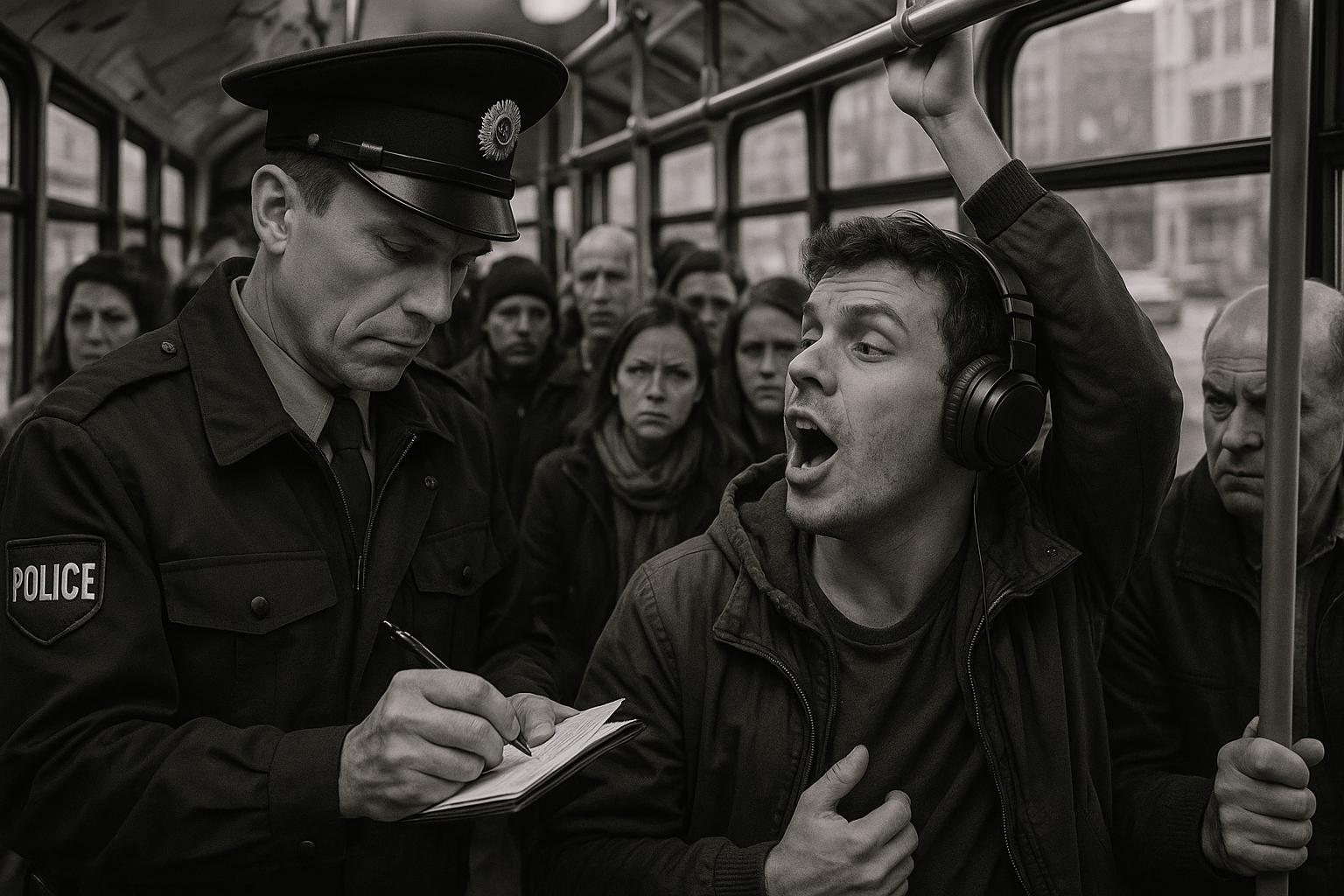The Conservative Party has set its sights on tackling the longstanding nuisance of loud music and antisocial behaviour on public transport, proposing new legal measures aimed at protecting passengers from disruptive noise. Shadow transport secretary Richard Holden has called for swifter justice against those who blast music on buses and trains, arguing that commuters should not be forced to “endure somebody else’s choice of crap music.” The proposals include tougher enforcement of existing railway byelaws, which currently forbid playing music to the annoyance of others, and plans to extend similar protections to bus passengers through amendments to the Bus Services Bill now before Parliament.
Under current railway byelaws, offenders can face fines of up to £1,000 for causing annoyance, but enforcement has been inconsistent. The Tories want to ensure operators implement these rules robustly by empowering staff to issue on-the-spot fines. Moreover, the Bus Services Bill would grant transport authorities powers to create byelaws against low-level antisocial behaviours and deploy officers to uphold them across the bus network.
The Conservative proposals dovetail with similar calls from the Liberal Democrats, who have fervently pushed for stringent penalties against so-called "headphone dodgers" — passengers who play music or videos aloud, disturbing fellow travellers. The Lib Dem plan includes fines up to £1,000 specifically targeting those who refuse to use headphones on public transport. This initiative has garnered cross-party support, including cautious approval from Tory leader Kemi Badenoch, who expressed reservations about the practicalities of imposing large fines but affirmed a strong stance against antisocial behaviour.
Government sources underline that strict laws already exist to maintain decorum on public transport, including potential fines of up to £1,000. The Department for Transport has also introduced additional measures such as mandatory training for transport staff to handle antisocial incidents more effectively. Alongside these legal tools, a new initiative is supporting the deployment of specially trained Transport Safety Officers (TSOs) across several English regions. These officers work closely with police forces and the British Transport Police to enforce rules and promote safer, more respectful environments on buses, trains, and trams.
Despite the legislative push, some voices caution against heavy-handed penalties. Commentators have noted the ambivalence many people feel towards unsolicited noise in public spaces — while it can be irritating, it also forms part of urban life’s complex soundscape. Instead of relying solely on fines, there is a call to encourage the public to engage with offenders directly, fostering mutual respect and accountability without escalating into punitive measures. This balance seeks to maintain public transport as a peaceful yet vibrant shared experience.
The drive to regulate public transport noise reflects broader concerns over everyday antisocial behaviour, a persistent issue that governments have tried to address for decades. Historical efforts, dating back to 19th-century laws against street musicians and noisy conductors, show that managing urban noise has long challenged policymakers. Today’s proposals aim to modernise these efforts, applying clearer rules and better enforcement to create a more pleasant, less disruptive journey for millions of commuters.
📌 Reference Map:
- Paragraph 1 – [1], [7]
- Paragraph 2 – [1], [4], [7]
- Paragraph 3 – [4], [5], [6]
- Paragraph 4 – [3], [5]
- Paragraph 5 – [2]
- Paragraph 6 – [2], [4]
Source: Noah Wire Services
